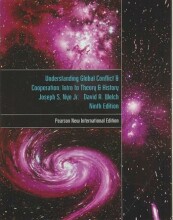Explaining conflict and cooperation: tools and techniques of the trade - Paradigms and theories
6 important questions on Explaining conflict and cooperation: tools and techniques of the trade - Paradigms and theories
What is a hypothesis?
What is a paradigm?
- They have a notational function (keeping concepts in order)
- Can be thought of as the foundations of which structures of knowledge (theories) are build on
- They are abandoned from time to time
What are the four dominant paradigms in the study of politics?
2. Liberalism
3. Marxism
4. Constructivism
- Higher grades + faster learning
- Never study anything twice
- 100% sure, 100% understanding
What is the difference between classical realists and structural Neo-realists?
What is the difference between defensive and offensive realists?
Marxism suffers from three weaknesses, that are:
The question on the page originate from the summary of the following study material:
- A unique study and practice tool
- Never study anything twice again
- Get the grades you hope for
- 100% sure, 100% understanding
































